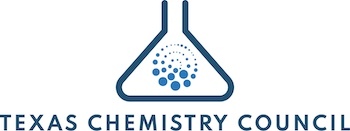Complete Story
02/07/2025
Texas A&M picks 4 companies to deploy cutting-edge nuclear reactors at Rellis Campus
Houston Chronicle | Claire Hao | Feb. 4, 2025
Texas A&M picks 4 companies to deploy cutting-edge nuclear reactors at Rellis Campus
The Texas A&M University System has selected four companies to explore developing advanced nuclear reactors on its Rellis research campus in Bryan, university officials announced Tuesday morning.
Each of the four companies — Kairos Power, Natura Resources, Aalo Atomics and Terrestrial Energy — could potentially build at least one commercial reactor on the Rellis Campus, company executives said.
The announcement comes after Texas A&M sought an early site permit from federal regulators in November to offer land to nuclear companies. If approved by the Nuclear Regulatory Commission, Texas A&M would be the only higher education institution in the country with a commercial nuclear reactor site license.
Ultimately, the goal is to create an “energy proving ground” at the Rellis Campus that can serve as a test bed for cutting-edge energy technologies, Texas A&M Chancellor John Sharp said in an interview. A&M would offer companies its nuclear engineering expertise, as well as a site to demonstrate commercial viability of their technology to kickstart further development, he said.
Texas A&M’s leaders want to host what are known as small modular reactors, which are supposed to be smaller, easier to build and safer than traditional nuclear plants. Thus far, only three SMRs are operational in the world, none in the United States. One U.S. attempt sputtered to an end in 2023 after cost estimates tripled to $9.3 billion.
“We hope that at the end of it, we can show the rest of the country that SMRs are a viable, safe, reliable option to make sure we don't run out of power in this country,” Sharp said.
He cited projections of surging demand for electricity nationwide largely to accommodate power-hungry data centers, particularly those hosting artificial intelligence computing systems.
De-risking advanced nuclear
Texas A&M’s initiative follows Gov. Greg Abbott’s declaration that he wants Texas to be “the global leader in advanced nuclear power” so the state can meet its own fast-growing demand for electricity. Abbott convened a working group last year that suggested Texas create taxpayer-backed funds subsidizing the nuclear industry to entice them to the state, an idea the Texas Legislature will likely consider during its ongoing session.
Also under consideration is Texas A&M’s request for $200 million from the state’s General Fund, which would finance infrastructure upgrades necessary at the Rellis Campus to support potential nuclear reactors, said Joe Elabd, Texas A&M’s vice chancellor for research.
Though vague on details, most of the companies’ executives told the Houston Chronicle that if the Rellis Campus site fits their plans after further evaluation, they aim to build reactors that are operational within the next ten years.
Texas A&M would be compensated through land leases with the companies. Whether the university would share in the companies’ revenue from selling power is still being worked out, Elabd said.
Which entities would purchase and use the power is also under discussion. Some of the reactors could supply power directly to Texas A&M’s operations. Others could connect to the Texas grid to address the state’s power needs, Elabd said.
Elabd is especially hopeful the reactors could attract Big Tech companies to build commercial data centers at the Rellis Campus. That could elevate Texas A&M not only as the place to “de-risk” advanced nuclear technologies but also as a leader in artificial intelligence research, he said.
Companies’ plans
The largest company selected to move forward is California-based Kairos Power, which in October signed an agreement with Google, the first corporate agreement for purchasing nuclear energy from multiple small modular reactors. Kairos is constructing a test reactor in Tennessee dubbed Hermes Two, its first to generate electricity, which could be complete as soon as 2027.
“From there, we would plan on commercial expansion and deployment, and that's where the opportunity in Texas comes in,” Kairos Power CEO Mike Laufer said.
Kairos’ baseline commercial product would be two reactors delivering a combined 150 megawatts of power, Laufer said. The next step is to evaluate how many of those plants would be appropriate for the Rellis site, he said.
Two of the other selected companies, Natura Resources and Aalo Atomics, are based in Texas.
Natura Resources received a construction permit for a test reactor at Abilene Christian University in September, the second such permit for any advanced reactor issued by federal regulators.
Now, the Abilene-based company has an ambitious goal of deploying its first commercial reactor, approximately 100 megawatts in capacity, at the Rellis Campus before 2030, CEO Douglass Robison said.
Aalo Atomics, based in Austin, aims to build nuclear plants “purpose-built for data centers,” CEO Matt Loszak said. The company is developing a test reactor, known as Aalo-X, at the Department of Energy’s Idaho National Laboratory.
Aalo’s commercial product would be comprised of five 10-megawatt reactors and is estimated to cost $250 million in the next ten years, Loszak said. The goal would be to build a few of these plants to help power data centers at the Rellis Campus, he said.
The fourth company, Charlotte-based Terrestrial Energy, plans to build its first “commercial demonstration” power plant with two reactors totaling 400 megawatts of electricity capacity, said CEO Simon Irish. The company believes it could be operational within 10 years.
“The plan is to build a first one at Rellis. But the opportunity for us and our industrial partners that are involved in the Rellis project, including Texas A&M, is to deploy a fleet of these systems in Texas, nationally and internationally too,” Irish said.

